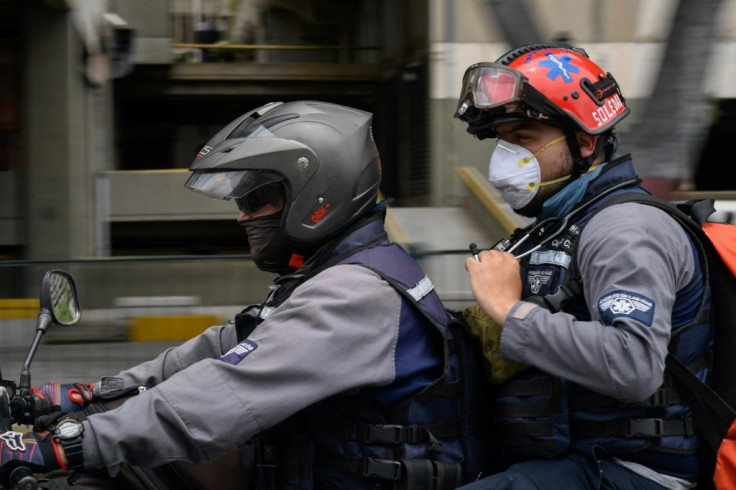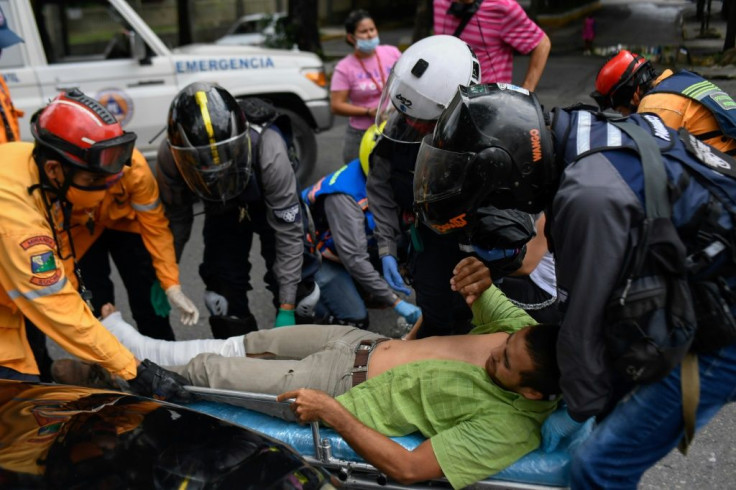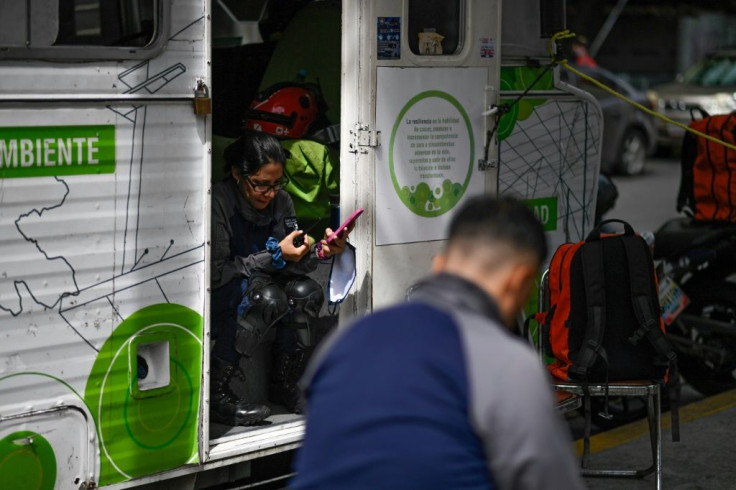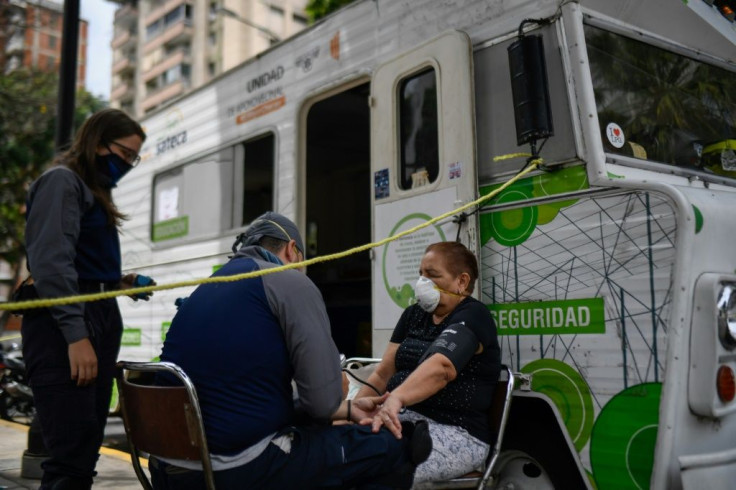Biker Paramedics Ride To The Rescue In Venezuelan Capital

Zully Rodiz and her kind are seen as modern-day angels in the chaos of the Venezuelan capital, roaring off on powerful motorcycles to the scene of a road accident or to bring medicine to the sick.
It's normally a task for ambulance crews and fully trained paramedics. But in the midst of a collapsing health system, desperate Caracas emergency services are increasingly looking to Rodiz and her friends at the "Angeles de las vias" ("Angels of the Roads") NGO to fill the gap left by a devastated primary care system.
Rodiz, a 38-year-old architect, says the 12 biker gang members answer emergency calls free of charge to back up poorly resourced paramedics.
State-employed "paramedics here are so badly paid," said Rodolfo Alvarado, who left a job in the city fire brigade to make a better living in pest control.
He joins up with the "Angels" in his spare time. "I prefer to do it for free in the days that I can," Alvarado, 30, told AFP.
Alvarado says they can attend up to 18 accidents a day, and it's not long before they are called into action to help a fellow motorcyclist after a collision with a car.
It takes less than five minutes to brace the right leg of the injured man, who is transferred to hospital shortly afterwards in an ambulance run by the civil defense service.

Normally a Caracas city fire brigade unit would be on the scene, but the emergency services face the same budgetary dilemmas as the rest of Venezuela's public services. Their coffers are empty.
Hence, in 2018 -- when shortages of food and medicine were forcing millions to flee Venezuela's economic meltdown -- the NGO was set up with donor funds to help fill the gap for the emergency services.
Before taking to the streets of Caracas, the "Angels" took first aid lessons in hospitals, which allows them to work with the blessing of the Venezuelan health authorities as they assist the victims of highway accidents.

Independent organizations claim there are only 206 intensive care beds in public hospitals in Venezuela, a country of 30 million.
And according to the NGO Doctors for Health, last year hospitals only had half the medicines and medical material they needed to function.

Doctors fear the medical system will be overwhelmed by COVID-19 patients as the pandemic worsens. Officially, Venezuela has so far recorded over 4,000 infections, with 35 deaths.
However, opposition parties and NGOs like Human Rights Watch have cast doubt on those figures.
The "Angels" run a "high risk of contagion" Rodiz acknowledged, as they never know if accident victims are carrying the virus. They use face masks and antibacterial gels to protect themselves.
"You feel scared, but you are not going to let it stop you doing your job," she said.
Dressed in smart grey uniforms, the group are equipped with protective visors, glasses, gloves and disinfectant gels.
David Mujica, 38, listens in to police and emergency service frequencies on a radio at the group's first-aid van, their mobile headquarters parked on a street in eastern Caracas.
"When you are immersed in this, you're on call every day," said Mujica.
Mujica is ready to jump on his motorbike at a moment's notice, to respond to an emergency call.
But the group is also there to cater for the relatively mundane.
A woman, in her 70s and trembling, approaches a yellow tape around the perimeter of the caravan.
After her blood pressure is taken, the woman's problem is diagnosed as an anxiety attack.
"Sometimes a person may have only sprained an ankle, but the moment you tend to them and give them your support, it changes lives," said Rodiz proudly.
© Copyright AFP {{Year}}. All rights reserved.




















